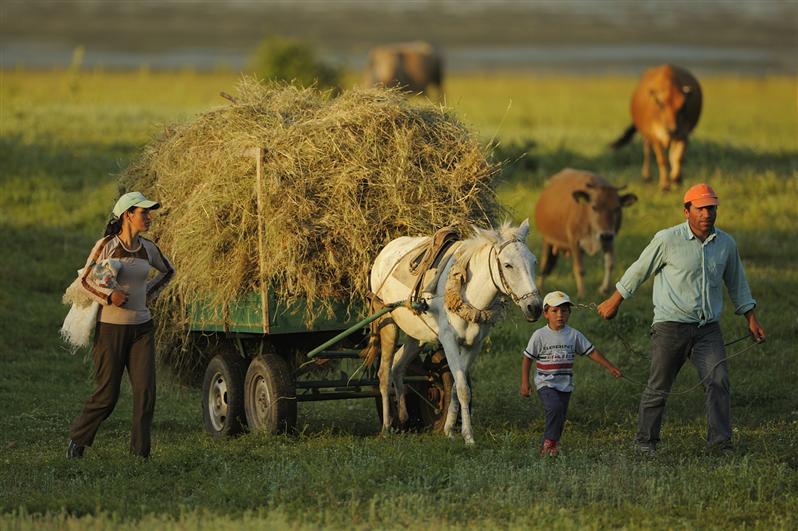The EU Commission has stimulated discussions on potential policy changes by publishing "The Common Agricultural Policy (CAP) Towards 2020 – Meeting the food, natural resources and territorial challenges of the future" to encourage forward thinking on where EU agriculture should be ten years from now. After further discussions of the options presented in the paper, the Commission will present legislative proposals in mid-2011. The Commission wants to make the CAP “greener, fairer, more efficient and more effective”. EU Agriculture and Rural Development Commissioner Dacian Ciolo? kusho, “The CAP is not just for farmers, it is for all EU citizens – as consumers and taxpayers… European agriculture needs to be not only economically competitive, but also environmentally competitive.”
Earlier in the year the Commission held a major conference on the CAP and three principal objectives were identified: (1) viable food production, (2) sustainable management of natural resources and climate action, futhi (3) maintaining the territorial balance and diversity of rural areas. The Commission document envisions that the two “pillars” of current CAP policy would remain: one pillar on direct payments (mayelana 70 percent of the CAP budget) and market measures that are defined at the EU level, and a second pillar addressing rural development with member states choosing from a number of programs based on their specific needs.
The Commission suggested three basic options for future policy directions. The first one could be termed incremental change in the status quo with minimal changes in direct payments, better risk management programs, simplified market measures and increased funding for rural development such as biodiversity and climate change. The second option would change direct payments to include “greening” efforts, simplify market measures, target rural development funds more to EU “green” objectives and protect incomes with a WTO green box compatible income stabilization tool. The third option would make the biggest break with current policies by phasing out direct payments in their current form and directing them to environmental programs and areas with specific natural constraints, abolish all market measures, except severe crisis programs, and direct rural development programs to climate change and other environmental issues.
The basic features of the three options are similar to what would be discussed in any developed country, including the U.S. What is different is that none of the options eliminates most traditional farm programs, with the possible exception of option three that focuses almost entirely on environmental programs. Under that option there would be payments related to environmental public goods. There are few market-oriented reforms because the CAP today is more market oriented than 20 iminyaka edlule. The paper notes that in 1991 market measures (price support and market control programs) accounted for 92 percent of CAP payments and have fallen to just 7 percent in 2009. They have been replaced by direct payments that are now getting more attention in the policy debate.
CAP programs are not likely to contract significantly after 2013. Direct payments will still be substantial, though they will change in form. Direct payments tied to 2000-02 production will be decoupled from that benchmark and focused on “active farmers” with income supports and payments for environmental public goods. Areas of the EU with natural resource constraints and small farms will receive payments to prevent them from being squeezed out by market forces. Payment differences between the 12 countries that have entered since 2004 and the older members will be removed. Market measures will decline some in all options.
The Commission document makes no mention of agricultural trade outside the EU. As the world's largest agricultural importer and competitor with the U.S. as the largest exporter that is surprising, but consistent with previous changes in the CAP and other policies. Markets are more open, but access is still restricted, and export subsidy programs, like sugar, have been reformed. The EU is also the largest agriculture importer from developing countries due to trade preferences granted to former colonies. A background note on frequently asked questions does state, “Europe must accept its share of responsibility at the international level” to produce sufficient quantities and quality of food while respecting very high health standards without harming the environment. The EU Commission will likely make a good faith effort to fashion new policies to be WTO compliant, such as direct payments not tied to current output, but that is difficult to maintain in the legislative process.
This will be the first CAP reform under the new EU co-decision procedures under the Lisbon Treaty. The EU Commission will act as the Administrative branch by holding conferences, releasing a draft set of ideas and proposing legislation after getting more stakeholder input. The European Parliament will perform the legislative function and mold the Commission’s legislative proposals to its liking. After the Parliament acts, the European Council made up of the 27 heads of state will vote on that product. The EU Commission will then implement the final law. All of this must be done by the end of 2013 for implementation to begin on January 1, 2014.
Whatever comes out that process, will impact EU production decisions and trade with the rest of the world. Protecting farm income and encouraging agricultural output without distorting trade is always a tricky process. The EU Parliament is likely to try to maintain the current programs to protect current recipients of payments, while budget pressures will require some changes and environmental groups will push for further change to reflect the commitment to “green” policies. As with all government farm policies, the ultimate challenge is to maintain or improve economic efficiency as stated by Commissioner Ciolo?. Unless that is done, EU agriculture and the rest of the world will suffer regardless of what else is included in the CAP beginning in 2014.

